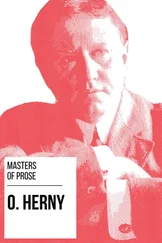It would be impossible in an exposition of this kind to dissect these essays in detail, nor would it be desirable. Many of the suggestions with regard to actual practice, suggestions that might be embodied in modern legislation, are open to criticism in detail, and I would not pin Mr Wells down to the letter of any one of them. He has certainly changed his mind on many points since he wrote these essays in constructive sociology, and the fact that he has so altered and enlarged his opinions is the best possible evidence of his reliability and sincerity. He is before all else devoted to the services of growth and progress. "To rebel against instinct," he writes, "to rebel against limitation, to evade, to trip up, and at last to close with and grapple and conquer the forces that dominate him, is the fundamental being of man." And no man can hope to dominate those forces, if he is content to let his opinions crystallise at the age of thirty-five or so. If he would retain his powers of criticism and construction he must have the patience and the energy to maintain the normal, receptive mind with which he is naturally endowed. Unfortunately with that endowment commonly comes another—namely, a tendency to avoid the irk or constant struggle by taking the line of least resistance; by adopting an opinion and upholding it in the face of all reason; and only a man of exceptional patience, courage and ability can keep himself free from the prejudices and fixed opinions which not only bring him a delusive peace and certainty but also are the means to worldly success.
So I would advise the readers of Anticipations and Mankind in the Making to be influenced by the spirit rather than by the letter of these two books. The spirit is definite enough; it is the spirit of humaneness, of a passionate criticism of all the evils, miseries and disease that are the outcome of our present haphazard civilisation; the spirit for a desire for order, wider prospects and opportunities, greater freedom for growth. Men are born unequal, with different tendencies, different desires, different potentialities, but there should be a place for every one of them in the great economy of "The New Republic." Each has to learn the lesson—for discipline is essential—that he is not an independent unit as regards his work, but a factor, more or less insignificant, in the sum of individuals that make up the greater State. The good New Republican "will seek perpetually to gauge his quality, he will watch to see himself the master of his habits and of his powers; he will take his brain, blood, body and lineage as a trust to be administered for the world."
Such, I think, is the spirit, the permanent principle of these two books. That remains and increases. The conception of the process by which the New Republic shall be built is less constant, and Mr Wells will change his opinions concerning it for just so long as he continues to grow. Should he ever adopt an inalterable policy, subscribe to some "ism," and wear a label, he would brand himself truly as inconsistent. Then, indeed, he would have contradicted himself. We search for truth never hoping to find it complete and whole; and he who is contented with a part denies God....
A Modern Utopia (1905) is an attempt to picture "The New Republic" in being; a very different dream of reconstruction from that displayed in Edward Bellamy's Looking Backward, and Equality, but having nevertheless certain points of likeness to the former at least, and especially in the method of marking contrasts by a form of parallelism, by keeping the world as we know it within the circle of attention in order to break the paralysing illusion that we are moving in romantic and quite impossible surroundings. Mr Wells' machinery is slightly complicated. He takes two figures from the beginning of this twentieth century. The Owner of the Voice ("you will go with him through curious and interesting experience. Yet, ever and again, you will find him back at the table, the manuscript in his hand ...") and the "botanist," a foil and a stimulator to the other expositor. "The image of a cinematograph entertainment is the one to grasp," writes Mr Wells in his preliminary explanation. "There will be an effect of these two people going to and fro in front of the circle of a rather defective lantern, which sometimes jams and sometimes gets out of focus, but which does occasionally succeed in displaying on a screen a momentary moving picture of Utopian conditions."
I think Mr Wells tried very valiantly to avoid the all too obvious mistake made by other Utopian builders, both romantic and practical. He began, I feel sure, with the admirable intention of depicting the people of the early twentieth century in new conditions, changed only in so far as they were influenced by the presentation of finer ideals and by more beautiful circumstance. He even introduced a contemporary critic of Utopian conditions in the shape of the talkative person, "a conscious Ishmaelite in the world of wit, and in some subtly inexplicable way a most consummate ass." But once we begin to postulate our Utopian villains, the reader's thought is distracted from the contemplation of the heroic which is the cement that binds every stone in the visionary city. In order to change conditions it is necessary to change much in the present cast of human nature. In a fiction of Utopia there is no place for a Napoleon, a Rockefeller, or an ambition-swelled Imperialist. So Mr Wells is driven with various hesitations and resentments to assume that the interactions of cause and effect have indeed tended to produce a sweeter-tempered, more generous race of men and women; that the spirit which moves us now to seek a larger liberty and a greater tolerance has been encouraged and increased by the exercise of its own tendencies and the sight of its own triumphs; and that those who set their minds to the building gain an added grace in the labour. It is a perfectly fair and consistent assumption, but Mr Wells has been warned by his predecessors, from Robert Owen back to Plato and forward to Edward Bellamy, that the designs for Utopia have always been flawed by an altered conception of the humanity that walks within the city; and he has begun by trying to avoid a fallacy and ended by begging a question that he might very well have convincingly argued.
By many people A Modern Utopia is definitely labelled as the "Samurai" book. That conception of a natural aristocracy of spirit and ability did indeed return upon its creator in the form of an object lesson that filled him with a disgust for what was really a fine ideal, only too temptingly displayed. So many of his readers, and particularly his younger readers, formed the wish to become "Samurai" without more ado, a high office for which none of them, perhaps, had the ability or the determination to fill. For Utopias take even longer to build than Rome or London. But the plan is there—vague and tentative as the original scheme of a Gothic cathedral, a plan to be continually modified and changed in its most important features; and the building has begun....
The last books that can strictly fall into the present category are The Future of America (1906) and New Worlds for Old (1908). The former is rather a record of impressions than the attempt at prophecy which the title and the first chapter indicate; and the final conclusion is too hesitating even to convince us that America has a future. "I came to America questioning the certitudes of progress," Mr Wells says in his Envoy. "For a time I forgot my questionings, I sincerely believed, 'These people can do anything,' and, now I have it all in perspective, I have to confess that doubt has taken me again." And without question he has changed his opinion with regard to many of the observations he made nine years ago. I sincerely hope he has.
New Worlds for Old is quite definitely a book of suggestions with regard to certain aspects of socialism. It is the most practical of all the sociological books, and makes so strong an appeal to the buried common-sense of even prejudiced readers, that a devoted Primrose Leaguer to whom I lent my copy was quite seriously disturbed in mind for nearly a week after he had read it. Fortunately for his own peace, he found an answer that permitted him comfortably to avoid the perpetual burden of an active responsibility. He thought that "Socialism would be all right in a perfect world," or words to that effect; and it was quite evident to him that the effort to make some small contribution towards raising the standard of human idealism was no part of his duty. In any case he greatly preferred the solid assurance of the Primrose League. And, speaking generally, as I have tried to do throughout, I find that New Worlds for Old presents a clearer indication to the possible path for the idealist than any of the other sociological essays. Mankind in the Making dealt very largely with education directed to a particular end, but in the book I am now considering may be found certain outlets for the expression of the less consistently strenuous. Education, whether of individual children in the home or regarded as a function of the State, offers continual perplexities that only the most resolute can confront day by day with renewed zeal; the problems of collective ownership are less confused by psychology, and the broad principles may be adopted and the energy of the young believer directed towards the accomplishment of minor detail. He may, for example, find good reason for the nationalising of the milk supply without committing himself to any broader theory of expropriation.
Читать дальше












